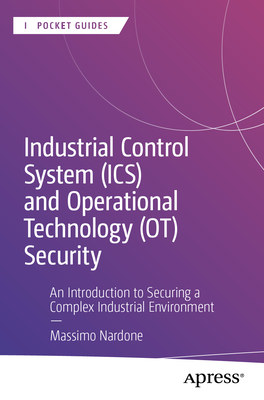Process Control Systems Engineering
暫譯: 過程控制系統工程
Leon Urbas
- 出版商: Deutscher Industrieverlag GmbH
- 出版日期: 2012-08-13
- 售價: $3,378
- 語言: 英文
- 頁數: 304
- ISBN: 3835631985
- ISBN-13: 9783835631984
-
相關分類:
控制系統 Control-systems
-
相關翻譯:
過程控制系統工程 (簡中版)
商品描述
Process Control Systems (PCS) are distributed control systems (DCS) that are specialized to meet the requirements of the process industries. Many processes and plants of that domain have high safety and availability requirements, are instrumented with a large number of sensors and actuators and show a rather high degree of automation at least in standard operation regimes.
There are remarkable differences and cross-discipline interdependencies between chemical-physical properties of the substances, prodedures, unit operations, equipment, instrumentation and control strategies. This results in the observation that there hardly any two plants that are identical, even if the products are interchangeable. Thus, it is not surprising, that there is an ongoing discussion if each domain of the process industries, namely chemicals, pharma, pulp & paper, oil & gas, food & beverages and water/waste water treatment should have its own specialized automation system. On the contrary, there are some opinions that PCS architectures that address all of the distinct requirements of the process industries, should even be generic enough to render the distinction between PCS and e.g. DCS for power generation and distribution a merely marketing or historical issue, not a technical one.
This text book contributes towards that discussion simply by putting its focus on PCS engineering basics that are common to the different domains of the process industries. The examples and exercises are related to an experimental research plant which serves for the exploration of the interaction between process modularization and process automation methods in the process industries. This makes it possible to capture features of highly specialized and integrated mono-product plants (e.g. chemicals) as well as application areas which are dominated by locally standardized general-purpose apparatus and multi-product schemes (bio-chemistry, pharma). While the theory presented in this text book is applicable for all of the PCS of the different established vendors, the examples as well as most of the screen shots refer to PCS 7, Siemens’ control system for the process industries. Focusing on a single PCS makes it possible to use this text book not only in basic lectures on PCS Engineering but also in computer lab courses that allow students gaining hands-on experience.
商品描述(中文翻譯)
過程控制系統(Process Control Systems, PCS)是專門為滿足過程工業需求而設計的分散式控制系統(Distributed Control Systems, DCS)。該領域的許多過程和工廠具有高安全性和可用性要求,並配備了大量的傳感器和執行器,至少在標準操作模式下顯示出相當高的自動化程度。
在化學物理性質、程序、單元操作、設備、儀器和控制策略之間存在顯著的差異和跨學科的相互依賴性。這導致觀察到幾乎沒有兩個工廠是完全相同的,即使產品是可互換的。因此,對於過程工業的每個領域,即化學、製藥、紙漿與造紙、石油與天然氣、食品與飲料以及水/廢水處理,是否應該擁有自己專門的自動化系統的討論仍在持續。相反,有些觀點認為,能夠滿足過程工業所有獨特需求的PCS架構,應該足夠通用,以至於將PCS與例如發電和配電的DCS之間的區別僅視為市場行銷或歷史問題,而非技術問題。
本教科書通過專注於不同過程工業領域的PCS工程基礎,為該討論做出貢獻。示例和練習與一個實驗研究工廠相關,該工廠用於探索過程模組化與過程自動化方法之間的相互作用。這使得能夠捕捉高度專業化和集成的單一產品工廠(例如化學品)以及由當地標準化的通用設備和多產品方案主導的應用領域(生物化學、製藥)的特徵。雖然本教科書中提出的理論適用於不同已建立供應商的所有PCS,但示例以及大多數螢幕截圖均參考PCS 7,西門子針對過程工業的控制系統。專注於單一PCS使得本教科書不僅可以用於PCS工程的基礎講座,還可以用於計算機實驗課程,讓學生獲得實際操作經驗。










